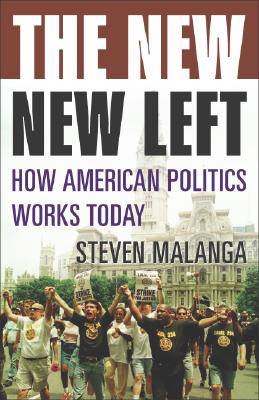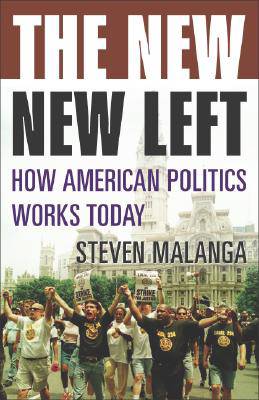
Door een staking bij bpost kan je online bestelling op dit moment iets langer onderweg zijn dan voorzien. Dringend iets nodig? Onze winkels ontvangen jou met open armen!
- Afhalen na 1 uur in een winkel met voorraad
- Gratis thuislevering in België vanaf € 30
- Ruim aanbod met 7 miljoen producten
Door een staking bij bpost kan je online bestelling op dit moment iets langer onderweg zijn dan voorzien. Dringend iets nodig? Onze winkels ontvangen jou met open armen!
- Afhalen na 1 uur in een winkel met voorraad
- Gratis thuislevering in België vanaf € 30
- Ruim aanbod met 7 miljoen producten
Zoeken
€ 23,95
+ 47 punten
Omschrijving
Politics in America today is more than just a contest between left and right, liberal and conservative, argues Steven Malanga in The New New Left. He describes an emerging new political dynamic: the contest between those who benefit from an ever-expanding public sector and those who pay for this bigger government--in other words, between tax consumers and taxpayers. Mr. Malanga traces the rise of the tax consumers' movement to two sources. One is the growth of public-sector employee unions beginning in the 1950s, which produced an increasingly powerful and influential lineup of organizations that are essentially political. The second is the War on Poverty, whose funding of grassroots social service groups in the 1960s created a new type of neighborhood "political club," sustained by and organized around public funding. Unlike the original New Left, which evolved from a naive but genuine effort to create a better society, these new groups, in Malanga's view, pursue an agenda based on their own narrow economic interests. The leading edge of this new movement has engulfed New York City, but it has begun to emerge forcefully in other American cities too, especially in California. In all these locales the New New Left concentrates its political energies toward larger government and higher taxes--to benefit the public sector. And the ideas behind the movement have effectively infiltrated American college campuses. Understanding how American politics works today is incomplete without Mr. Malanga's important book.
Specificaties
Betrokkenen
- Auteur(s):
- Uitgeverij:
Inhoud
- Aantal bladzijden:
- 160
- Taal:
- Engels
Eigenschappen
- Productcode (EAN):
- 9781566636445
- Verschijningsdatum:
- 5/05/2005
- Uitvoering:
- Hardcover
- Formaat:
- Genaaid
- Afmetingen:
- 161 mm x 228 mm
- Gewicht:
- 312 g

Alleen bij Standaard Boekhandel
+ 47 punten op je klantenkaart van Standaard Boekhandel
Beoordelingen
We publiceren alleen reviews die voldoen aan de voorwaarden voor reviews. Bekijk onze voorwaarden voor reviews.











